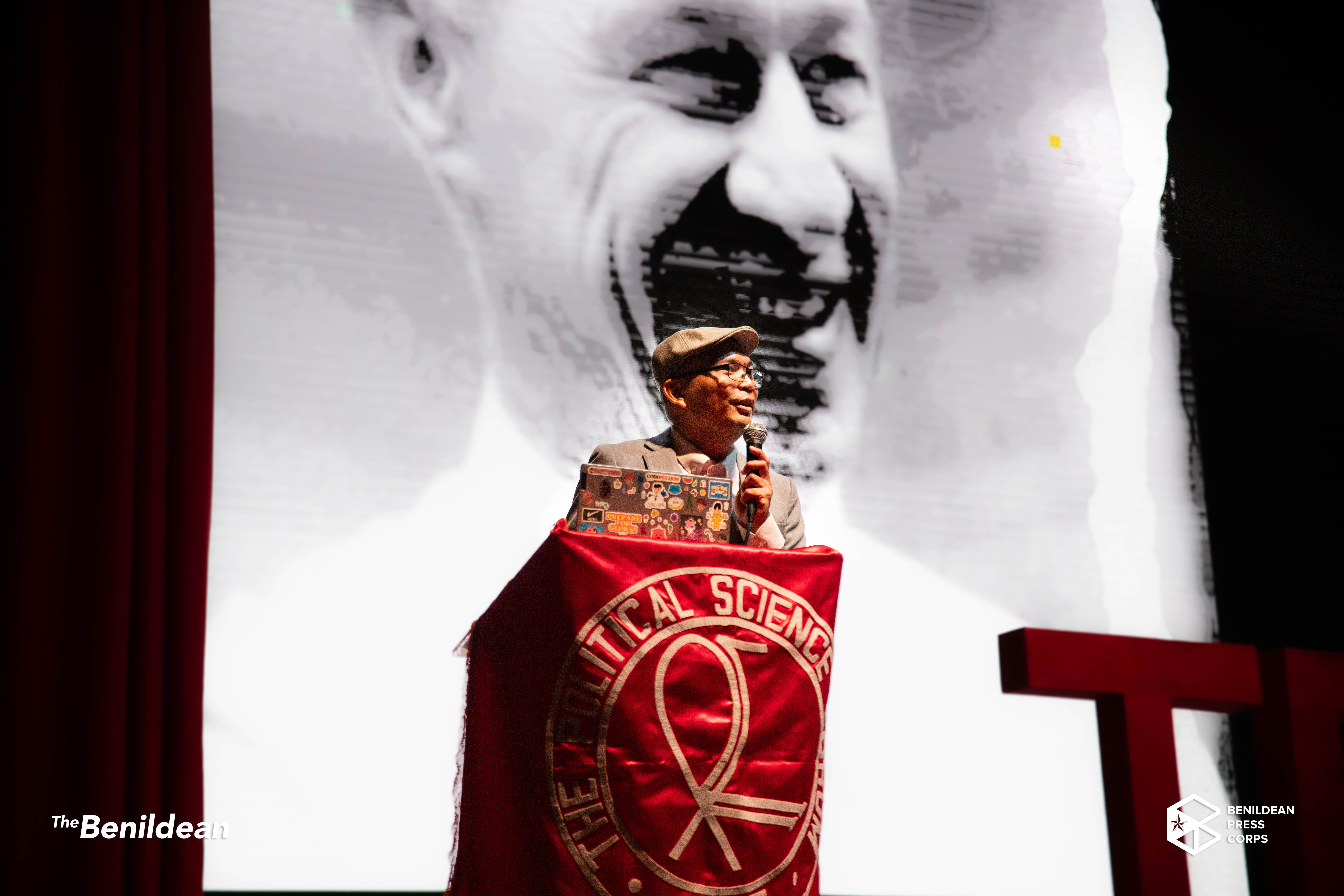The University of Santo Tomas’ (UST) The Political Science Forum (TPSF) spearheaded “CTRL + Politics: How Pop Culture Shapes the Political Scene in the Philippines,” challenging civic engagement and media literacy, at the UST Frassati Auditorium on Nov. 5.
Formally opening the seminar, Asst. Prof. Maria Zenia Rodriguez, MEM delivered her opening remarks underscoring the advanced scholarly discourse acknowledging that political power is influenced by digital media. Alongside the opening ceremonies was an interactive ice breaker that energized the participants from different schools and departments around Metro Manila.
Leading the discussion, Asst. Prof. Ronald Castillo, PhD of UST explained Pop and the Dynamics of the Popular. He first put into context the study of culture and popular culture by going back to its roots and historical timeline. Furthermore, he delved into the difference between mass culture and pop culture as well as soft power and sharp power.
Benildean film writer, director, and producer Ms. Charlie Vitug followed with a talk on the safety measures against censorship of political implications of the media. The discussion evaluated propaganda, feminism, and other political influences through the lens of print media, advertisements, and cinema. Nonetheless, she acknowledged that “Social media is the cheapest platform. We have a lot of freedom. [However,] oftentimes, we are not ready for these attacks, especially from the more powerful institutions.”
Following the evaluation of the media’s influence, Ms. Kishi Crystiana Abaca, UST Political Science alumna, analyzed the realization of the civic action of youth in Filipino films. Drawing from her past research, she shared insights on how these movies, rooted in culture and family dynamics, depict anti-dissent and the dissenting action of youth.
Ms. Abaca also emphasized the vital role of youth in nation building stating that “A lot of parents or authority figures dismiss what is going on around us because it doesn’t affect us. No matter how dismissive other people can be, know that you have the voice and the stance to be good citizens.”
“Nakaktakot ang political apathy. I wonder how hard it is going to be once you realize na you at the end of the day are affected by a lot of these things,” she added.
The event proceeded with the presentation of certificates for the speakers which was quickly followed by an open forum with Dr. Castillo and Ms. Abaca. Participants asked questions related to topics ranging from deepfakes and media manipulation to the dramatization of biopics in which Dr. Castillo reminded the audience that “We do not just simply subscribe, we critically analyze.”
For the next segment, Mx. Czekaina Esrah Rapanot, an instructor at the Department of Communication Research College of Mass Communication from the University of the Philippines Diliman, defined politics as a concern of an individual, as well as a concern of a collective.
They expounded on mediatization and convergence of politics and media stating that “The media logics are being intertwined with politics […] What you do and what you don’t say [are] political.”
The open forum that followed answered queries from the participants, particularly on the topic of spreading media literacy. Mx. Rapanot emphasized “I think we start education through empathy. Let’s not start with “Uy mali ka,” urging a kinder approach when correcting misinformation.
The event concluded with Asst. Prof. Christopher Mitch Cerda, PhD, from Ateneo De Manila University on his discussion about “Ang Politika ng Video Game na Filipino” on how games affect civic engagement, especially the youth.
He presented examples of video games by Filipino game developers exploring the Filipino idea or experience where he dissected its context and connotations directly influencing the political views of Filipino gamers.
In an interview with The Benildean, event participant Angel Lorraine Halog, a third-year Political Science student from Rizal Technological University, shared that she had many takeaways, noting how it deepened the context of pop culture and its influence on politics.
“I also would like to point out that I really enjoyed the last presentation which was about games. They were able to give very important insights and give it meaning,” she shared.


